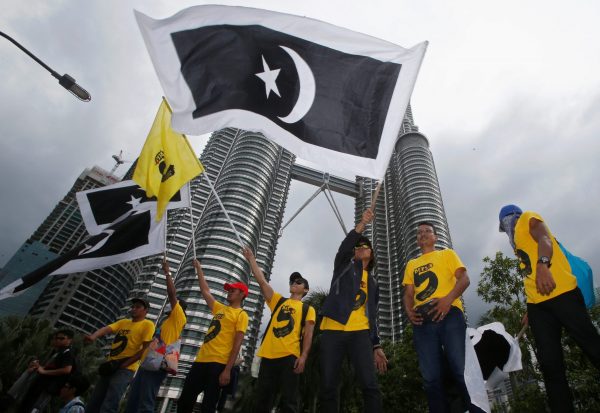This flurry of new political institutions has not only expanded avenues for democratic representation but also for ‘consultative representation’. The latter primarily involves state-sponsored institutions for public policy consultation where elites control who participates and how. In authoritarian and democratic states alike, such institutions allow governments to mitigate reform pressure without necessarily deepening democracy.
States facing the pressures of capitalist development have opted for different consultative institutions to try to contain conflict. This is because different models of capitalism shape the interests threatened or supported by particular institutions and ideologies of participation and representation. Brief comparisons of the two authoritarian cases of Malaysia and Singapore illustrate these points.
Since the early 1970s, capitalism and politics were organised and rationalised in Malaysia in a distinctive way. The principal stated official aim was to transform the comparatively disadvantaged social and economic position of ethnic Malays. Promotion of an ethnic Malay business and state bureaucratic class was integral to this strategy. So too was insistence on Malay political supremacy within the Barisan Nasional (BN) coalition that ruled Malaysia until May 2018.
Notwithstanding significant initial improvements for ethnic Malays in general, this strategy’s real power lay in growing capital accumulation opportunities for those closely aligned to the dominant BN party — the United Malays National Organisation (UMNO). As inequality grew, so too did BN reliance on repression to quell opposition and on ethnic and religious nationalism to justify BN rule and state patronage systems.
Consultative representation was attempted, but it proved counter-productive. Two national consultative committees (one in 1989–90 and the other in 1999–2000) produced governance reform proposals antithetical to the regime’s political patronage systems. BN realised the danger of such representation, while participants concluded involvement was futile. With such exercises abandoned, the politically disaffected concentrated on electoral politics and civil society mobilisations. This focus peaked under former prime minister Najib Razak with huge street demonstrations organised by the Bersih movement pushing for electoral and other institutional reforms.
Many who took to the streets had become sceptical about UMNO’s claims to be the custodians of Malay interests. After all, the Malaysians most affected by inequality and rising living costs were poor ethnic Malays. Corruption allegations in 2015 over US$4.5 billion missing from state investment company 1Malaysia Development Berhad helped broaden the reform movement. This movement included then former prime minister Mahathir, who aligned with Bersih and led the Pakatan Harapan coalition to government in May 2018.
The BN’s retreat from consultative institutions was necessary, but it limited options to contain conflict. Instead, as distributional and governance frictions intensified under the BN’s development model, independent institutions of political participation and representation became powerful vehicles for government critics.
In Singapore, by contrast, the ruling People’s Action Party (PAP) has had more institutional options at its disposal. The PAP’s interests and ideological dominance do not link principally to race or religion but rather to state capitalism under technocratic rule. The PAP developed and refined state-controlled consultative institutions incorporating experts, civil society actors and others into public policy deliberations that were depicted as apolitical problem-solving exercises.
As early as the 1980s, rapid development under the PAP combining economic globalisation and state capitalism encountered new competitive pressures — especially in manufacturing. As cost-cutting restructures disrupted business and labour, the middle class simultaneously expanded and diversified. To reduce the attraction of opposition parties and independent organisations, the PAP introduced nominated members of parliament and a range of public policy feedback mechanisms.
More sustained and rapid capitalist growth produced more inequality, in which Singapore’s simultaneous dependence on low-cost labour in manufacturing and high-cost professionals in other sectors was a major factor. A massive influx of guest workers and immigrants also placed pressure on Singapore’s infrastructure and sparked anti-foreigner sentiment. Consequently, the PAP recorded its lowest winning electoral margin since independence at the 2011 polls.
Rather than abandon consultative institutions, the PAP supported them through a creative new initiative — Our Singapore Conversation (OSC). This 12-month enquiry starting in October 2012 included 660 dialogues and other in-person and online engagements with 47,000 citizens. The resulting report made no specific policy recommendations, but PAP leaders subsequently linked OSC processes to reforms in health care, public housing affordability and income supplements for disadvantaged families.
Against this background, the PAP enjoyed a 9.8 per cent boost in support at the 2015 election, with its leaders projecting more expansive and diverse forms of state-sponsored public feedback for the future.
In Southeast Asia’s more authoritarian regimes, more citizen participation in governing may well prove a means of forestalling democracy — not an ingredient of installing it.
Garry Rodan is Professor of Politics & International Studies and Director of the Asia Research Centre, Murdoch University. The comparison of Singapore and Malaysia is discussed more comprehensively, with the Philippines, in his 2018 book: Participation without Democracy: Containing Conflict in Southeast Asia (Cornell University Press).

